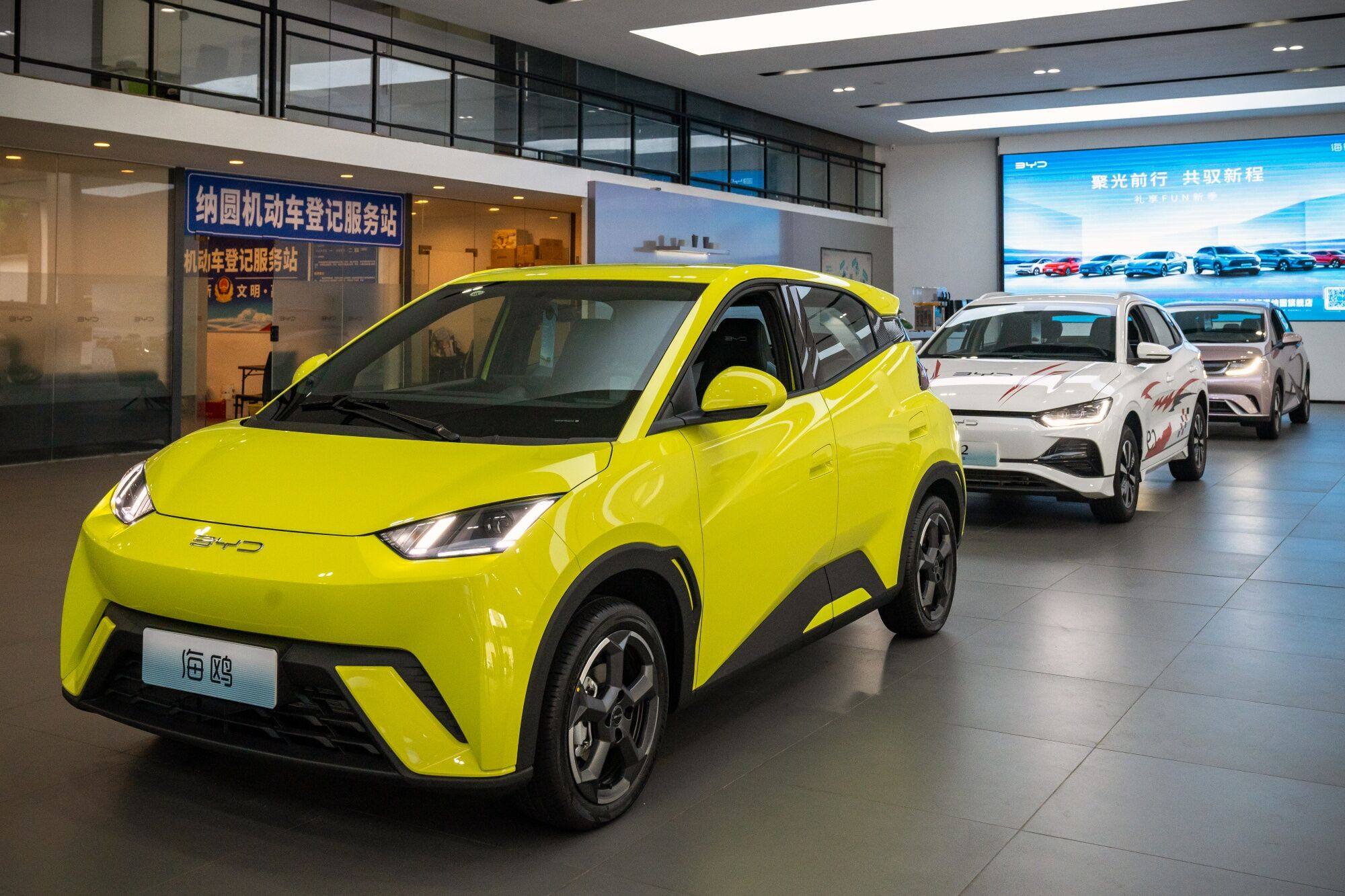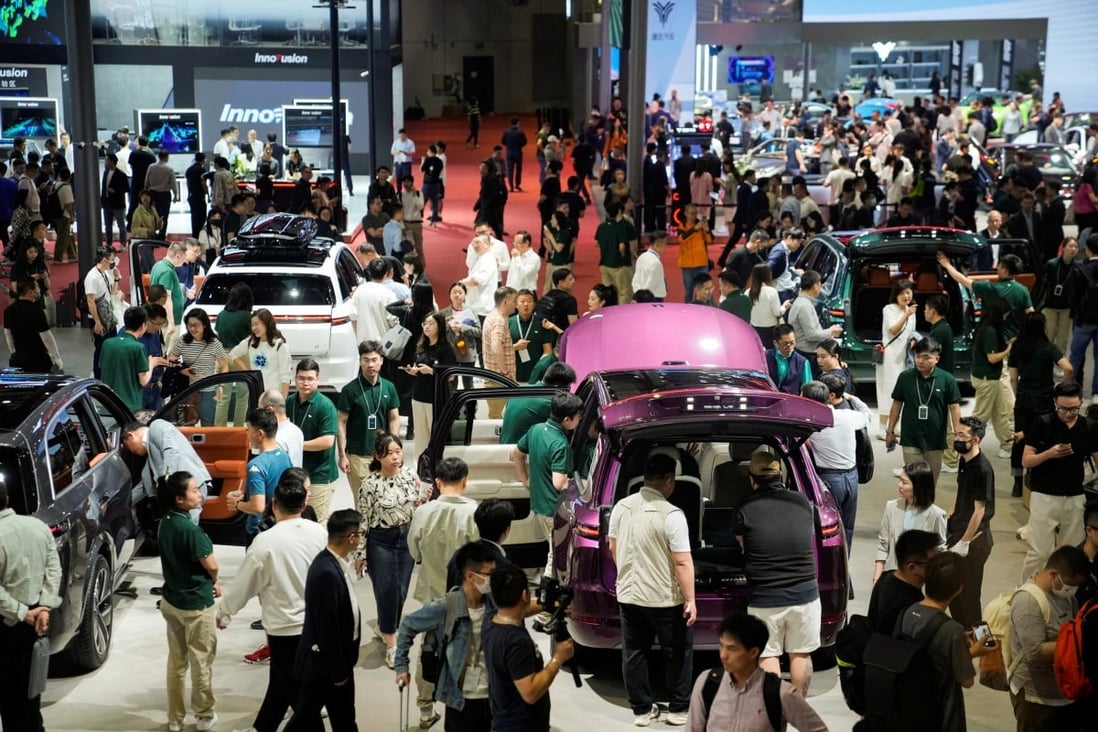●Shenzhen-based BYD delivered 240,220 electric cars last month, beating the previous record of 235,200 units it set in December
●Carmakers are ceasing to offer discounts after a months-long price war started by Tesla failed to ignite sales
Two of China’s top electric vehicle (EV) makers, BYD and Li Auto, set new monthly sales records in May, spurred by a recovery in consumer demand after a bruising, months-long price war in the ultra-competitive sector.
Shenzhen-based BYD, the world’s largest electric-car builder, delivered 240,220 pure electric and plug-in hybrid vehicles to customers last month, beating the previous record of 235,200 units it set in December, according to a filing to the Hong Kong stock exchange.
That represents a 14.2 per cent increase over April and a year-on-year jump of 109 per cent.
Li Auto, the mainland’s leading premium EV maker, handed 28,277 units to domestic customers in May, setting a sales record for a second consecutive month.
In April, the Beijing-based carmaker reported sales of 25,681 units, becoming the first homegrown maker of premium EVs to break though the 25,000 barrier.
Both BYD and Li Auto stopped offering discounts on their cars last month, having been drawn into a price war sparked by Tesla last October.
Many motorists who had been waiting on the sidelines in the expectation of further price cuts decided to swoop when they realised the party was coming to an end.
“The sales figures added to evidence that the price war might come to an end very soon,” said Phate Zhang, founder of Shanghai-based electric-vehicle data provider CnEVpost.
“Consumers are coming back to buy their long-coveted EVs after many carmakers stopped offering discounts.”
Guangzhou-based Xpeng delivered 6,658 cars in May, up 8.2 per cent from a month earlier.
Nio, headquartered in Shanghai, was the only major EV builder in China to post a month-on-month decline in May. Its sales dropped 5.7 per cent to 7,079 units.
Li Auto, Xpeng and Nio are viewed as Tesla’s main rivals in China. They all develop electric cars priced above 200,000 yuan (US$28,130).
BYD, which dethroned Tesla as the world’s biggest EV company by sales last year, mainly assembles models priced between 100,000 yuan and 200,000 yuan.
Tesla, the runaway leader in China’s premium EV segment, does not report monthly figures for deliveries within the country, though the China Passenger Car Association (CPCA) provides an estimate.
In April, the US carmaker’s Gigafactory in Shanghai delivered 75,842 Model 3 and Model Y vehicles, including exported units, down 14.2 per cent from the previous month, according to the CPCA. Of these, 39,956 units went to mainland Chinese customers.

In mid-May, Citic Securities said in a research note that the price war in China’s automotive industry was showing signs of abating, as carmakers refrained from offering further discounts to attract budget-conscious customers.
Major carmakers – particularly those producing conventional petrol vehicles – stopped cutting their prices to compete against each other after they reported a jump in deliveries in the first week of May, the report said, adding that prices of some cars had rebounded in May.
Tesla started the price war by offering huge discounts on its Shanghai-made Model 3s and Model Ys in late October, and then again in early January this year.
The situation escalated in March and April with some companies slashing prices of their vehicles by as much as 40 per cent.
The lower prices, however, did not drive up sales in China as the carmakers had hoped. Instead, budget-conscious motorists decided not to buy vehicles, expecting further price cuts to follow.
Industry officials had forecast that the price war would not come to an end until the second half of this year, as weak consumer demand hobbled sales.
Some companies that are facing low profit margins will have to stop offering discounts as early as July, said David Zhang, a visiting professor at Huanghe Science and Technology College.
“Pent-up demand remains high,” he said. “Some customers who do need a new car made their purchase decisions recently.”
Post time: Jun-05-2023





